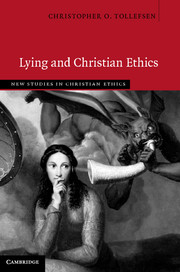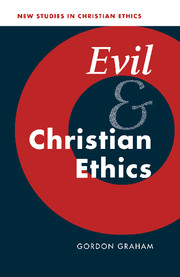Lying and Christian Ethics
Lying and Christian Ethics defends the controversial “absolute view” of lying, which maintains that an assertion contrary to the speaker's mind is always wrong, regardless of the speaker's intentions. Whereas most people believe that a lie told for a good cause, such as protecting Jews from discovery by Nazis, is morally acceptable, Christopher Tollefsen argues that Christians should support the absolute view. He looks back to the writings of Augustine and Aquinas to illustrate that lying violates the basic human goods of integrity and sociality and severely compromises the values of religion and truth. He critiques the comparatively permissive views espoused by Cassian, Bonhoeffer, and Niebuhr and argues that lies often jeopardize the good causes for which they are told. Beyond framing a moral absolute against lying, this book explores the questions of to whom we owe the truth and when, and what steps we may take when we should not give it.
- Very readable, non-technical prose
- Striking conclusion: even for a good cause, lying is always wrong
- Argues that social movements are corrupted by lying in service of moral truth, and that democracy is ill-served by the lies of those with authority
Reviews & endorsements
"… the book offers a serious and sustained theological look at the real consequences of lying from the viewpoint of Catholic moral theology … Recommended."
A. W. Klink, Choice
Product details
April 2014Hardback
9781107061095
220 pages
235 × 159 × 18 mm
0.46kg
Available
Table of Contents
- General editor's preface
- Introduction
- 1. What is lying?
- 2. The Christian case against lying: Augustine and Aquinas
- 3. The Christian case for lying: Cassian, Bonhoeffer, and Niebuhr
- 4. Moral absolutes
- 5. Integrity, sociality, truth, and religion
- 6. Justice and the right to truth
- 7. The casuistry of truth-telling and deception
- 8. Lying for a good cause
- Conclusion.




